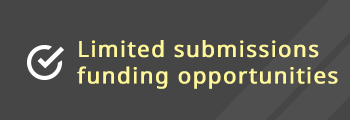Applications due Nov. 29
Vanderbilt University may submit only one application for the NEH Humanities Research Centers on Artificial Intelligence opportunity.
Overview
The Humanities Research Centers on Artificial Intelligence program aims to support a more holistic understanding of artificial intelligence (AI) in the modern world through the creation of new humanities research centers on artificial intelligence at eligible institutions. Centers must focus their scholarly activities on exploring the ethical, legal or societal implications of AI. NEH is particularly interested in projects that explore the risks of AI-related technologies on truth, trust and democracy; safety and security; and privacy, civil rights and civil liberties.
Centers will examine the humanities implications of AI through two or more related scholarly activities. Centers must be led by scholars in the humanities or humanistic social sciences but should include scholars from multiple disciplines. Scholars may come from one or more institutions. NEH welcomes international collaboration, but scholars at U.S. institutions must contribute significantly to the project. This program is for establishing new centers; existing centers and institutes are not eligible in this competition.
In addition to the establishment of a sustainable center, projects should engage in at least two activities that support research into the ethical, legal or societal implications of AI.
Appropriate activities may include, but are not limited to:
- collaborative research and writing efforts
- workshops or lecture series
- education and mentoring
- the creation of digital tools to increase or advance scholarly discourse about AI
Outcomes and performance indicators
Applications must propose outcomes that contribute to the creation and long-term development and sustainability of the Humanities Research Center. All project outcomes must address the center’s chosen thematic focus and convey interpretive humanities work.
Projects must result in a leadership structure, a mission statement and an institutional plan for long-term sustainability by the end of the first year of the period of performance. Additional outcomes may include, but are not limited to:
- a lecture series extending beyond the period of performance
- a workshop series, colloquia or summer institute to explore the impact of AI
- digital infrastructure for enabling multidisciplinary or multi-institutional research about the humanistic implications of AI
- curriculum development or training courses for AI literacy in the humanities
- a multi-authored book, peer-reviewed articles in academic journals or articles for the general public, or both
Competitive applications will propose to accomplish at least two such outcomes during the period of performance.
Award information
Proposals may request up to $500,000, (with a maximum of $200,000 per year) plus an additional $250,000 in federal matching funds. This includes the sum of direct and indirect costs.
Allowable costs include, but are not limited to, salary replacement; compensation of collaborators, postdoctoral students, consultants and research assistants; fringe benefits; and travel, lodging and per diem costs for lecturers or convening participants.
Proposals may request a period of performance up to 36 months with a start date between Oct. 1, 2024, and Sept. 1, 2025.
Internal application instructions
Interested faculty should visit https://vanderbilt.infoready4.com/#competitionDetail/1921281 to submit an application for the internal LSO competition and to find additional information about the opportunity. The deadline for the internal competition is Nov. 29, 2023.
Required internal submission materials include:
- Narrative (max. 2 pages)
- Narrative should provide a concise overview of the project and its thematic focus and describe the significance of the center and its proposed activities
- Work plan (max. 1 page)
- Work plan should provide an overview of proposed accomplishments, identifying major phases, milestones and performance indicators. Outline a set of activities for each phase and specify the project team members involved.
- Resume (max. 2 pages)
- Bibliography (max. 1 page)
- Letter of support from department chair/center director/other
Any questions about this opportunity or the LSO process may be directed to VU-LSO@vanderbilt.edu.
